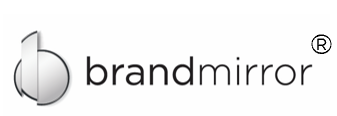1. Recognize the mistake and assess the situation
- “Take a deep breath” – pause for a moment (depersonalize it)
- Quickly analyze and understand the impact and gravity (keep it in perspective)
- Try and fix the mistake right away – maybe there is time to stop the mistake
- Play out the best & worst-case scenario – come to terms with it and move forward
- Identify the right person to approach and inform – if it is big – you may need help from senior leaders or people in other teams
- Be poised and confident in your communication – ask for help if needed
- Sincerely apologize and with the appropriate response (don’t over apologize)
- Apologize in person if possible – be honest about the mistake
- Identify what is going to happen to fix it and what will be done so it never happens again
- Keep your communication brief (don’t waste time)
3. Own your actions
- Take yourself, your audience, and your mistake seriously
- Identify how to prevent it in the future – the 5 Whys, get to the root cause to solve the problem
- Don’t blame others
- Fix it yourself if possible
- Go above and beyond to make it right
4. People make mistakes – yours won’t be the first or last
- Work to earn back trust – deliver high-quality results
- Get over being perfect – we all make mistakes
- Forgive yourself – do not beat yourself up over it, it’s happened, move on
- Project a confident you – chin up, deep breath, and set a good example (don’t avoid the next meeting or sit in the back or not speak up)
- Re-frame how you see yourself when it is tough – Internal vs. external attribution (are you taking ownership or shifting the mistakes to others)
5. What can you do before you make a mistake?
- Be visible and build relationships with a diverse stakeholder group
- Invest in others and help them – make “deposits” and create value for others
- Be confident and take/share credit for good results, learn to use “I” and “We” when describing your contribution (build credibility)
- Identify ways to build a culture where failure is seen as learning
- Share lessons learned with your team – have empathy, be human
The latest research from the Georgetown University Women’s Leadership Institute, led by Dr. Cathy Tinsley, showcases how Tupperware created a culture where failure was more about learning and the organization saw an increase in confidence, willingness to take risks, and higher performance. Read the latest research here. Below is an excerpt from the report highlighting the importance of failure as part of success.
Workers who heard that failure is part of the road to success reported higher levels of confidence and an increased ability to overcome challenges. Moreover, research showed that more confident workers are more successful at work, and are more optimistic about future success than workers with less confidence.
They are:
- 16% more likely to come up with better ways of getting things done
- 17% more likely to be innovative at work
- 24% more likely to overcome challenges at work
Building a personal brand before you need it is an important key to building credibility, confidence, and moving past mistakes. Ensuring that you are visible to senior leaders can also help you identify who would be a good mentor as well as a champion. In good times and in bad times, a personal brand can help you weather the storm.
Be a noisebreaker,
Jen Dalton
*Originally posted on the Georgetown University Women’s Leadership Institute site.

